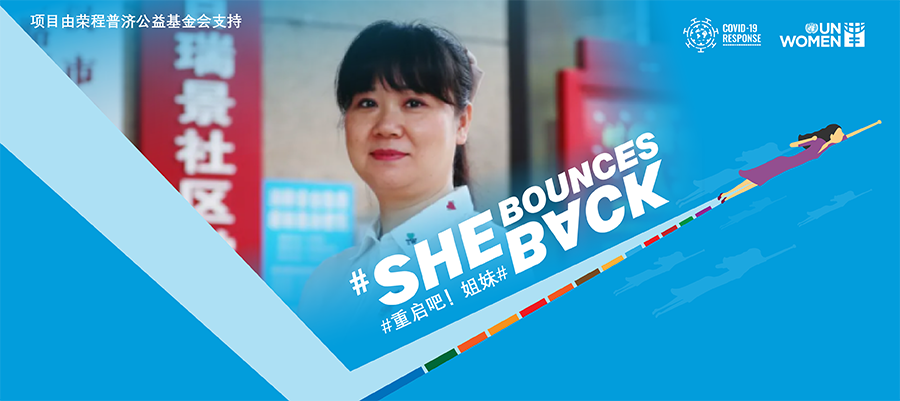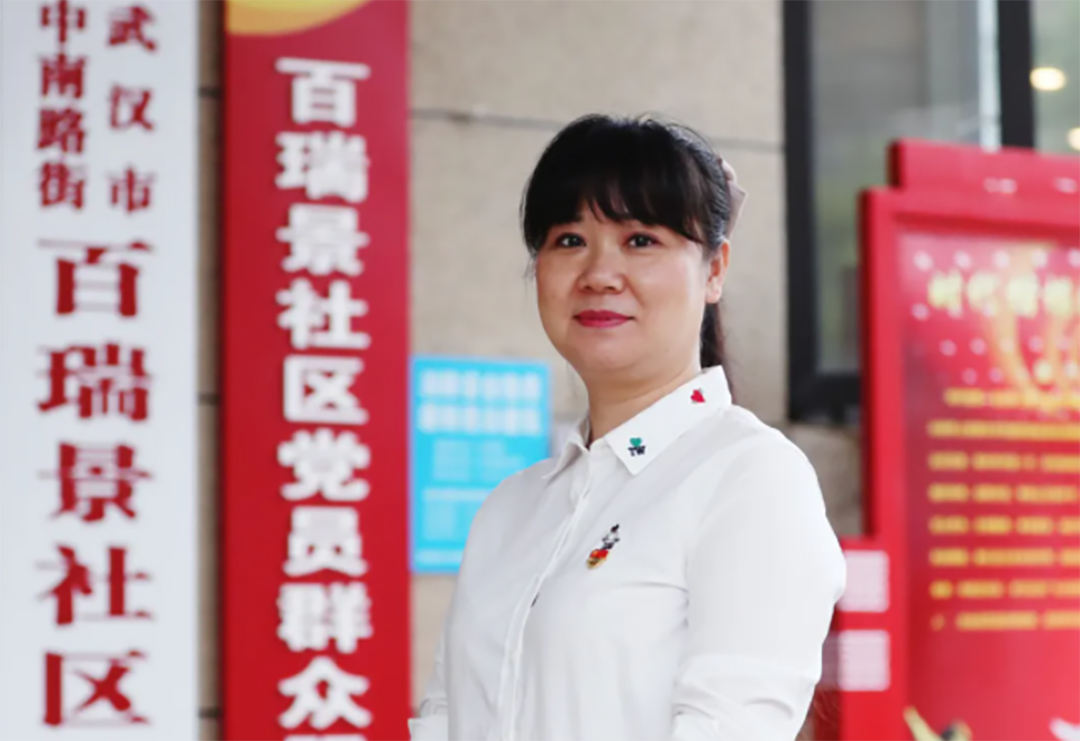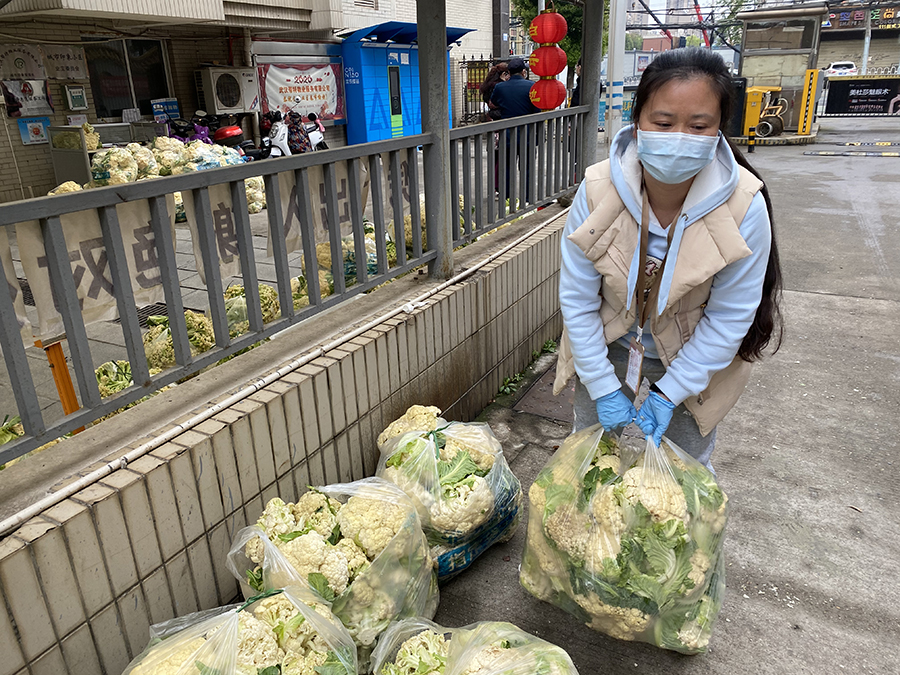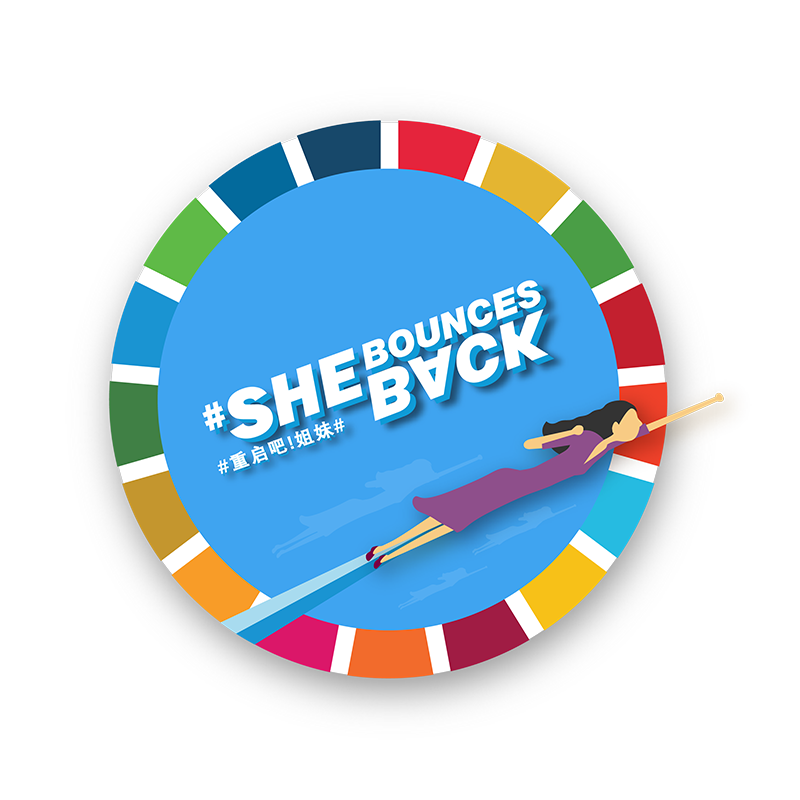
Wang Yaling: The rise of a community guardian
Wang Yaling is the chair and secretary of the Bairuijing Women's Federation in Wuhan, Hubei province, which was badly hit by COVID-19. In 2020 she won many accolades for her leadership. Confronted with an unprecedented crisis, the community leader mobilized more than 400 volunteers and developed a structure to assign and manage them, to make sure that each residential area was cared for. Working ceaselessly for 120 consecutive days, she was dubbed by the government as a ‘National Pace-Setter in the Fight Against COVID-19’.

Wang Yaling is the chair and secretary of the Bairuijing Women's Federation, in Wuhan, Hubei province. Photo: Wang Yaling
"Our residents often call me the Leader of the Ten Thousand Residents because my community has the most households in Wuhan’s Wuchang district. It was 20 January when we were given our first assignment by the local government: to announce to our area that we were in a state of war, and then to monitor and manage the movements of those infected by COVID-19. We initially felt overwhelmed by the information and all the issues that came our way, but our fear was forgotten once we started focusing on our task. As the leader of our women’s federation, I was charged with leading our community service team.
We fought the virus for more than 120 consecutive days. We shut down the local winter childcare center and entertainment facilities, and managed the regular disinfecting of public areas. We regularly broad casted information to help inform residents and relieve their anxiety during quarantine; this was mostly about the pandemic control measures, using online platforms and community messaging groups. During the initial lockdown my colleagues and I helped to send 307 confirmed and suspected COVID-19 case to the hospital.
One of the biggest management challenges that I faced was alack of staff: there were only 23 community workers, incidentally, 80 per cent women. Each colleague had to serve nearly 1,000 residents, so the workload was overwhelming. I began to mobilize all kinds of people and groups, including cadres, youth football teams, real estate companies and ordinary residents, and within just 20 days more than 400 volunteers had joined us. To effectively manage them I assigned them into grids that corresponded to our residential areas. We also formed service squads to lead different activities: calming residents down on the phone for example, disinfecting surfaces, purchasing food and medicine for residents, and so on. All of us coordinated well.

Wang Yaling (right) helps to source and deliver vegetables for local residents. Photo: Wang Yaling
Women have played a huge role in the fight against the pandemic. They’ve made up the majority of workers, whether among medical personnel, community workers, or volunteers, especially on the frontlines. I still feel huge responsibility for the health and safety of the community, even now that the emergency has reduced.
The pandemic has brought us, community workers, closer to the residents. Many have recognized our work and committed to continue working with us, even when the pandemic is no longer a threat. I think this experience has brought our team more credibility and cohesiveness. I’m glad that more people have been able to witness women's leadership in action.”
Special thanks to the All-China Women’s Federation and China Women’s Daily for their contributions to this story.
